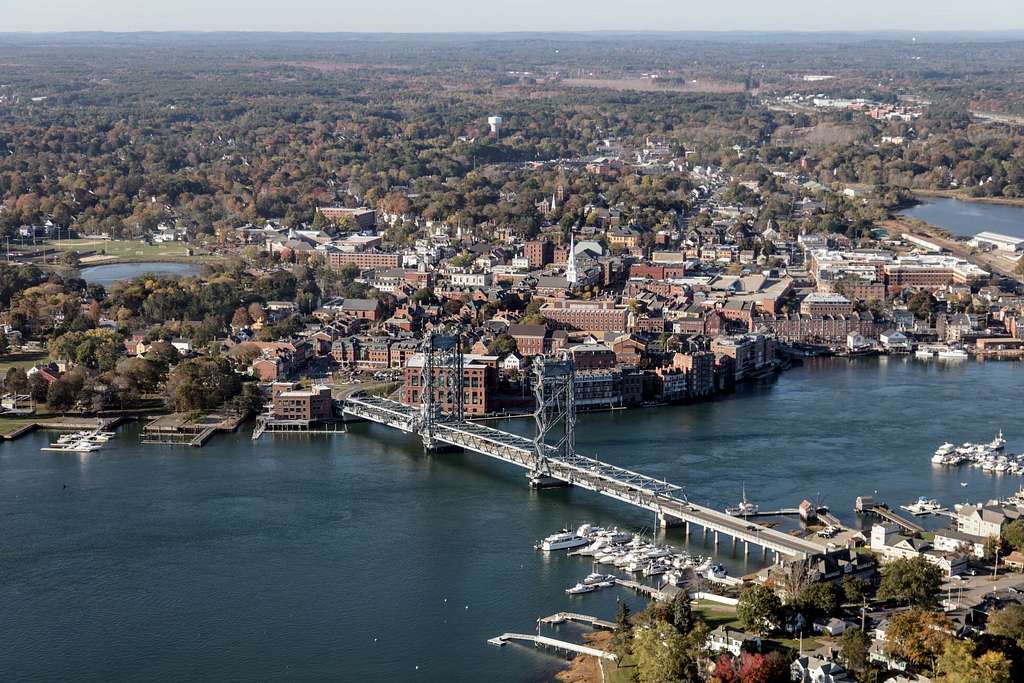New Hampshire’s ambulance providers struggle with the nation’s second-lowest Medicaid reimbursement rates at just $125 per BLS transport while facing collection rates below 38%, creating critical financial pressure on services dependent on municipal subsidies and volunteer staffing.
Payer Mix Reality
New Hampshire’s payer landscape reflects its aging demographics and limited Medicaid expansion impact. Current mix shows Medicare at 37%, Medicaid at 19%, commercial insurance at 35%, and self-pay at 9%. Anthem Blue Cross Blue Shield controls 51% of commercial market share, followed by Harvard Pilgrim at 23% and Cigna at 12%. The reimbursement structure reveals stark disparities: Medicare pays approximately $445 for BLS transports, while New Hampshire Medicaid reimburses only $125 – among the lowest nationally. Commercial payers average $875 but increasingly deny claims for medical necessity. Collection rates paint a troubling picture at 38% overall, with critical access area services collecting only 32%. The state’s high percentage of Medicare Advantage plans (44%) introduces prior authorization requirements impacting emergency transports. Self-pay collections average just 21%, complicated by seasonal population fluctuations in tourist regions. Municipal services report 100-day A/R exceeding 50% of total receivables, indicating systemic revenue cycle dysfunction requiring immediate intervention to ensure service sustainability.
State Medicaid & Compliance
New Hampshire Medicaid’s reimbursement crisis significantly impacts EMS operations statewide. The state maintains the second-lowest ambulance rates nationally: $125 for BLS, $285 for ALS, with minimal mileage compensation at $5 per loaded mile. Timely filing requirements allow 365 days for submission, though full payment requires 120-day filing. New Hampshire’s No Surprises Act implementation mandates good faith estimates for all non-emergency transports, with specific disclosure requirements for balance billing limitations. Prior authorization is required for all non-emergency Medicaid transports through form NH-MEMT-2023, submitted 48 hours before service. The New Hampshire Department of Health and Human Services updated regulations in July 2023, adding requirements for electronic claim submission and real-time eligibility verification. Documentation must include detailed transport logs, physician orders specifying ambulance necessity, and alternative transport consideration documentation. Schedule a demo today—24-hour turnaround to maximize your New Hampshire Medicaid reimbursement despite challenging rate structures.
Collection Laws
New Hampshire’s consumer protection framework provides extensive medical debt safeguards while allowing structured recovery efforts. The state enhances federal FDCPA protections: collectors must register with the Banking Department, provide detailed validation notices, and restrict contact to 8 AM – 9 PM Eastern Time. House Bill 1296 (2023) revolutionized medical debt handling – prohibiting wage garnishment for medical debt under $10,000 and capping garnishment at 10% for larger amounts. The statute of limitations stands at three years for open accounts, six years for written contracts. New legislation requires 180-day waiting periods before credit reporting and mandates income-based payment plans. Providers must offer 24-month payment terms for balances exceeding $500, with no interest or fees. Collection agencies face strict licensing requirements including $25,000 surety bonds. Violations trigger enhanced penalties: $1,000 base fine plus actual damages and attorney fees. Unique provisions protect consumers from collection activities during active insurance appeals or financial hardship documentation periods.
Local EMS Landscape
New Hampshire’s EMS system relies heavily on municipal and volunteer services across its 234 towns. Major hospital networks include Dartmouth-Hitchcock (academic center), Catholic Medical Center, and Elliot Health System. The 911 structure varies dramatically – cities like Manchester and Nashua operate professional fire-based EMS, while 75% of towns depend on volunteer or call services. Private operators including American Medical Response and Cataldo Ambulance provide backup and transfer services. Average transport distances range from 12 miles in the Seacoast to 65 miles in the North Country. Unique challenges include mutual aid dependencies where 40% of towns lack primary ambulance services. Seasonal tourism in the White Mountains and Lakes Region creates 300% volume fluctuations. Many services operate under regional compacts sharing resources across town boundaries. Contract peculiarities include per-capita municipal funding models and regional dispatch agreements. Schedule a demo today—24-hour turnaround to optimize billing across New Hampshire’s fragmented EMS landscape.
Case Study
In Concord, Capital Region Fire/EMS tackled their 45% denial rate from commercial payers by restructuring their entire billing operation. The department, responding to 8,500 calls annually across three communities, saw net collections drop to $2.1 million on $5.5 million in charges. They implemented real-time insurance verification at dispatch, reducing information errors by 67%. By creating payer-specific documentation templates and training field crews on billable documentation, they decreased medical necessity denials from 38% to 16%. Their focused approach to Anthem prior authorizations for non-emergency transfers improved approval rates by 73%. Within ten months, net collections increased to $3.2 million while reducing billing staff overtime by 40%. The improved cash flow allowed the department to avoid proposed service reductions and maintain full ALS coverage across their service area.
New Hampshire’s challenging reimbursement environment demands exceptional revenue cycle expertise. Midwest Service Bureau’s specialized healthcare solutions address the unique pressures facing Granite State EMS providers operating with the nation’s lowest Medicaid rates. New Hampshire EMS billing recovery requires innovative approaches to maximize commercial reimbursement while managing high Medicare Advantage penetration. Maintaining New Hampshire ambulance debt compliance becomes critical as new consumer protections limit traditional collection methods. Our New Hampshire emergency medical transport collections strategies balance aggressive revenue pursuit with strict regulatory compliance. Understanding New Hampshire surprise billing ambulance requirements ensures your organization avoids penalties while optimizing appropriate patient collections.
The New Hampshire Department of Safety’s 2023 EMS Bureau Report highlighted average collection rates of 38% statewide, with volunteer services collecting only 31% of charges. Professional revenue cycle management can improve these metrics while navigating New Hampshire’s complex regulatory environment. Schedule a demo today—24-hour turnaround to enhance your billing performance despite reimbursement challenges.
Midwest Service Bureau’s compliance guarantee ensures your collections meet all New Hampshire requirements while maximizing every available revenue opportunity. Contact us at 316-263-1051 to address your New Hampshire EMS revenue challenges.





